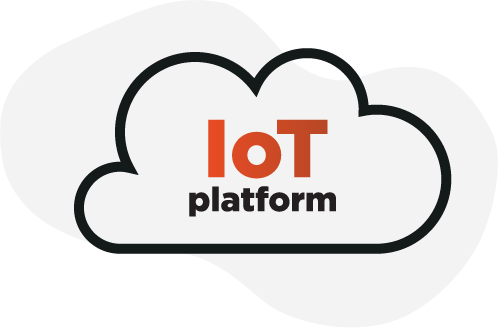What is an IoT platform?
A Mini Guide to IoT Platforms and What to Consider:

What is an IoT platform?
An IoT platform is a software infrastructure that supports the construction, operation, and maintenance of IoT systems. It provides a centralized location to connect, monitor, and manage a variety of IoT devices and sensors, as well as to collect, analyze, and share data from these devices. IoT platforms may also include additional functions such as security, network management, data handling, and services to create and implement business logic.
Today, IoT platforms have become a critical technology for many businesses. They assist in connecting and monitoring a variety of devices and machines that are connected to the internet, allowing companies to collect data and gain insight into their operations and performance. There are many different IoT platforms available on the market, each with its own strengths and weaknesses. Some of the most popular IoT platforms include Amazon Web Services IoT, Microsoft Azure IoT, and Google Cloud IoT.
How do I choose the right IoT platform?
Choosing the right IoT platform can be a challenge for businesses as there are so many different options available. It is important to thoroughly research the various platforms to find the one that best suits the company's needs and requirements. It may be a good idea to examine the functionality, ease of use, scalability, and pricing of the different platforms before making a decision. It can also be useful to speak with other businesses who have experience with various IoT platforms to get their insights and advice.
Another important factor for businesses to consider when choosing an IoT platform is security. With so many devices and machines connected to the internet, there is a risk that they can be vulnerable to cyber attacks or other forms of hacking. Therefore, it is important to select an IoT platform that has strong security features and can protect the company's data and devices. It may be a good idea to research the security measures of the various platforms and determine which ones best fit the company's needs.
IoT platforms can also have different integrations and connectivity options with other technologies and tools. This can be useful for businesses that want to use their IoT platform in conjunction with other technologies to gain even more insights and improve their business processes. Therefore, it may be a good idea to research which integrations and connectivity options are available for the different IoT platforms, and choose the one that best fits the company's needs.

Implementation of the platform
Once an IoT platform has been chosen, it is important to implement it correctly and use it in the most effective way. It may be a good idea to have a dedicated employee or an external specialist who can help set up the platform and ensure that it is being used optimally. It can also be beneficial to have ongoing training and support for the employees who will be using the platform, so that they are familiar with its features and have the necessary skills to take advantage of it.
At Iterator IT, we have many years of experience helping businesses develop their IoT platforms, making it easy for our customers to collect data from various devices, store it, and transform it into a format that adds value to our customers. If you are interested in learning more about how we ensure our customers get the most optimal IoT platform tailored to their needs, you can visit our case page and read about what we have developed for other companies.
Alternatively, you are welcome to contact us either through our contact form here or call our CEO Casper at +45 31 39 05 69.